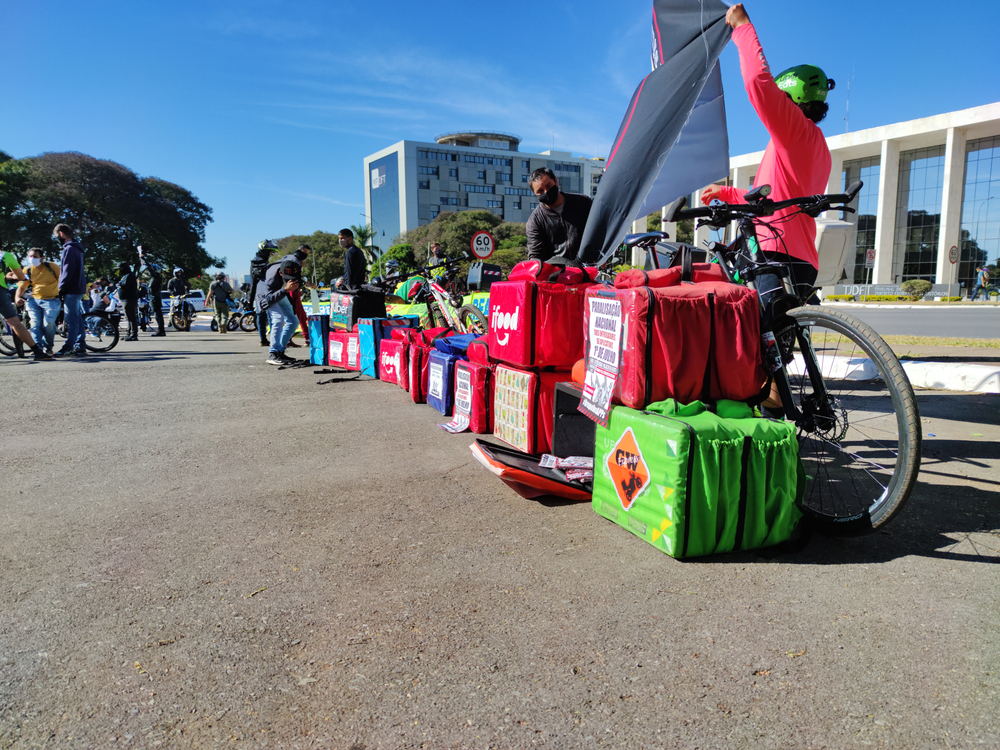The pandemic shed light on an oft-overlooked part of the economy: gig workers. When social restrictions were introduced back in 2020, consumers began to order food and buy their goods online more frequently. Delivery apps quickly became the country’s biggest job-creating industry — bringing to attention some of its problems. In June of that year, gig workers called for a one-day strike to raise awareness of their working conditions.
In two years, little has changed. According to the Fairwork Brazil report, launched this week, none of the main gig-economy apps provide their workers with the bare minimum in terms of fair pay, fair conditions, fair contracts, fair management, and fair representation.
“In the last year, workers from different platforms have faced precarious and dangerous working conditions, with numerous reports of health problems and accidents,” says the report. “Workers we interviewed for this study also complained about low payments and unjust deactivations.”
On a scale from zero to ten, three of the apps scored zero...


 Search
Search






































